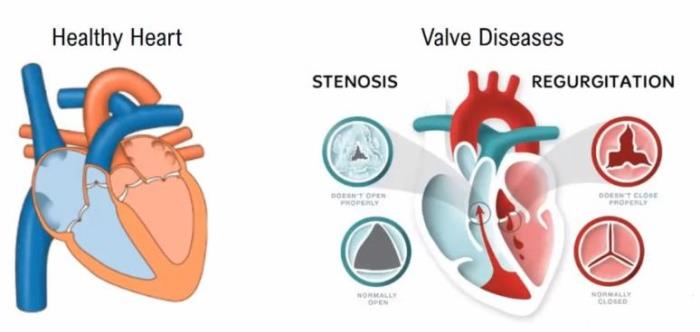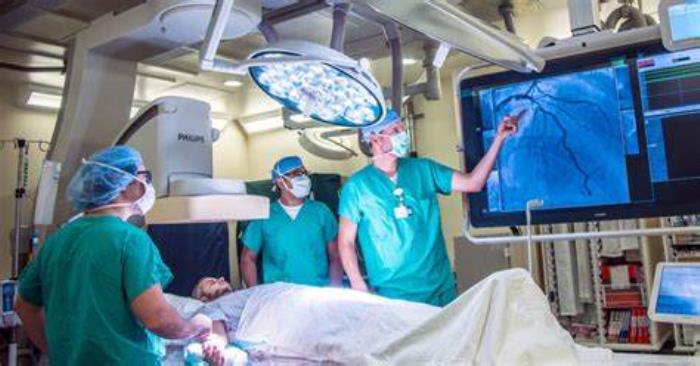Cardiology consultations play a vital role in diagnosing and managing heart valve disease. These consultations ensure that patients receive a comprehensive evaluation of their heart health, enabling timely and effective treatment plans. Specialists focus on understanding the progression of valve problems and addressing any associated complications.
Medical disclaimer: This content is for general awareness and does not replace a doctor’s consultation. For diagnosis or treatment decisions, consult a qualified specialist.
Understanding Heart Valve Disease Through Specialist Evaluations
Heart valve disease can manifest in a variety of ways, from mild symptoms to life-threatening complications. Cardiologists conduct detailed assessments to understand the nature and extent of the condition. Early detection and intervention are critical to preventing irreversible damage to the heart.
How Cardiologists Assess the Severity of Valve Problems
Specialists use clinical observations and diagnostic tools to determine the severity of valve dysfunction. They assess symptoms such as shortness of breath, chest pain, and fatigue, while also evaluating heart murmurs and other physical signs that indicate valve-related issues.

Diagnostic Tests Typically Recommended During Consultations
Cardiology consultations often include a series of diagnostic tests to provide a detailed picture of the heart's function. Commonly recommended tests include:
Echocardiography: To visualize valve structure and blood flow.
Electrocardiogram (ECG): To detect irregular heart rhythms.
Chest X-rays: To identify heart enlargement or fluid in the lungs.
Cardiac MRI or CT scans: For precise imaging of valve and heart conditions.
Evaluating Your Overall Heart Health Before Surgery
Before proceeding with heart valve surgery, cardiologists thoroughly evaluate the overall health of the heart. This includes assessing the functioning of the heart muscle, the presence of any blockages in coronary arteries, and the impact of valve disease on other heart structures.
Identifying Comorbidities That May Impact Surgical Outcomes
Conditions like diabetes, hypertension, and chronic kidney disease can influence the success of heart valve surgery. Cardiologists identify and manage these comorbidities to optimize patient outcomes and reduce surgical risks.
Discussion of Treatment Options: Surgery vs. Alternative Approaches
Based on the evaluation, cardiologists discuss the best course of action with the patient. While surgery is often the most effective treatment for severe valve disease, alternative approaches such as medications or catheter-based interventions may be considered in specific cases. These discussions ensure patients are well-informed about their options.
Timing of Surgery: Insights from Your Cardiologist
Your cardiologist plays a crucial role in determining the optimal timing for heart valve replacement surgery. They assess the severity of your condition through symptoms, imaging results, and overall health to recommend the best time for intervention, balancing the risks of waiting against those of surgery.
Risk Assessment and Preparing for Potential Complications
Cardiology consultations include a thorough risk assessment to identify potential complications based on your medical history, age, and comorbidities. This helps create a personalized surgical and recovery plan tailored to minimize risks and improve outcomes.
Creating a Personalized Pre-Surgery Plan
A comprehensive pre-surgery plan, developed with input from your cardiologist, ensures all aspects of your care are coordinated. This includes preparing for surgery, adjusting medications, and optimizing your physical and mental health.
Addressing Patient Concerns and Questions During Consultations
Open communication with your cardiologist is vital for addressing any concerns or questions you may have about the procedure. They provide clear explanations of risks, benefits, and expected outcomes to help you make informed decisions.
The Role of Second Opinions in Pre-Surgical Decision-Making
Seeking a second opinion can offer additional insights and reassurance before committing to heart valve replacement surgery. Cardiologists encourage this practice to ensure you feel confident in your treatment plan.
How Cardiologists Collaborate with Cardiac Surgeons
Cardiologists work closely with cardiac surgeons to plan your treatment. Their collaboration ensures a seamless transition from diagnosis to surgery, with all medical records and test results shared for optimal surgical planning.

Importance of Pre-Surgery Lifestyle and Medication Adjustments
Your cardiologist may recommend lifestyle changes, such as improved diet and exercise, to strengthen your body before surgery. Adjustments to medications, such as blood thinners, are also crucial to prepare you for the procedure and reduce risks.
Discussing Long-Term Prognosis with Your Cardiologist
During consultations, your cardiologist will discuss the long-term prognosis of your condition, including how surgery can improve your quality of life and life expectancy. They may also outline potential challenges and how to manage them post-surgery.
Cardiology Consultations for High-Risk Patients
For high-risk patients, cardiology consultations are even more critical. Advanced imaging, stress tests, and tailored pre-surgical plans are used to ensure the safest approach, addressing specific risks associated with conditions like diabetes or kidney disease.
The Role of Imaging Tests in Planning Valve Replacement Surgery
Imaging tests, such as echocardiograms, CT scans, or MRIs, are integral to planning heart valve replacement surgery. They provide detailed information about the heart’s structure, valve function, and overall condition, guiding precise surgical techniques.
Preparing Mentally and Emotionally for Surgery
Your cardiologist can help you prepare mentally and emotionally for surgery by providing support and resources, such as counseling or connecting you with support groups. Managing stress and anxiety contributes to better surgical outcomes.
Follow-Up Care Recommendations After Initial Consultations
After your initial consultation, follow-up appointments are essential to monitor your condition, refine the surgical plan, and address any new concerns. Regular check-ins ensure you remain on track for a successful surgery and recovery.
Understanding the Risks of Delaying Heart Valve Replacement Surgery
Discover why timely heart valve replacement surgery is crucial. Delaying the procedure can lead to severe complications, including heart failure and decreased quality of life. This article discusses the risks of postponement and emphasizes the importance of timely intervention.
The Impact of Heart Valve Disease on Daily Activities
Explore how heart valve disease affects daily activities. From fatigue to shortness of breath, this condition can significantly impair everyday tasks. This article sheds light on the challenges faced by individuals and the benefits of treatment in restoring normal life.
Conclusion: Laying the Foundation for Successful Heart Valve Surgery
Cardiology consultations are the foundation for successful heart valve replacement surgery. By assessing risks, addressing concerns, and preparing a personalized plan, your cardiologist ensures you are well-prepared for the procedure and recovery.
Best Heart Valve Replacement Surgeons in India
The Best Heart Valve Replacement Surgeons in India are highly skilled in complex valve procedures, offering personalized care to help patients achieve successful outcomes and enhanced heart health.
FAQs
Why are cardiology consultations necessary before heart valve replacement?
Cardiology consultations help assess the severity of your condition, evaluate risks, and determine the best timing and approach for surgery.
What tests are typically done during these consultations?
Common tests include echocardiograms, CT scans, MRIs, stress tests, and blood work to evaluate your heart’s function and overall health.
How does a cardiologist decide the right time for surgery?
The decision is based on the progression of symptoms, imaging results, and the impact of the condition on your overall health and daily life.
Can I get a second opinion if I’m unsure about surgery?
Yes, seeking a second opinion is encouraged to ensure you feel confident and well-informed about your treatment plan.
What lifestyle changes should I make after the consultation?
Your cardiologist may recommend adopting a heart-healthy diet, increasing physical activity, quitting smoking, and adhering to prescribed medications.
Explore the Best Heart Care Resources in India
Find some of the top cardiologist, surgeons and the best heart hospitals in India
Best Heart Hospitals in India
Choosing the right hospital is crucial for successful heart treatments. If you want to explore trusted options, check the list of Best Heart Hospitals in India offering world-class facilities, advanced cardiac care units, and experienced teams for both simple and complex procedures.
Best Cardiologists in India
Finding the right cardiologist can make a huge difference in early diagnosis and long-term heart health. If you are looking for the Best Cardiologists in India, see this curated list of experts who specialize in preventive care, interventional cardiology, and complex heart disease management. Check the full list Best Cardiologists in India.
Best Cardiac Surgeons in India
If you are planning for heart surgery and need top-level expertise, we recommend exploring the Best Cardiac Surgeons in India. These surgeons have a proven record in performing bypass surgeries, valve replacements, and minimally invasive heart operations with excellent outcomes.
Get more indepth information on Cardiology treatments and their costs.
Conclusion
Your cardiology health deserve the best care. Explore the links above to learn more about the top cardiac hospitals and cardiac surgeons in India.
Preventing infection after heart valve surgery is crucial for a successful recovery. Best practices include maintaining proper hygiene, such as frequent handwashing and keeping the incision site clean and dry. Patients should follow their healthcare provider's instructions for wound care and take prescribed antibiotics as directed. Avoiding contact with sick individuals and attending all follow-up appointments are also essential. These measures help reduce the risk of post-surgical infections and promote healing. Preventing Infection After Heart Valve Surgery: Best Practices
Heart valve disease can significantly affect daily activities by causing symptoms such as shortness of breath, fatigue, chest pain, and dizziness. These symptoms can limit physical exertion and reduce the ability to perform routine tasks. Managing heart valve disease through medical treatment, lifestyle changes, and regular monitoring is essential to improve quality of life and maintain daily functionality The Impact of Heart Valve Disease on Daily Activities
Delaying heart valve replacement surgery can lead to serious health complications. As the valve dysfunction progresses, the heart has to work harder, which can cause symptoms like shortness of breath, fatigue, chest pain, and dizziness to worsen. Over time, this increased strain can result in heart failure, arrhythmias, pulmonary hypertension, and even stroke. Early intervention is crucial to prevent irreversible damage and improve long-term outcomes. Understanding the Risks of Delaying Heart Valve Replacement Surgery